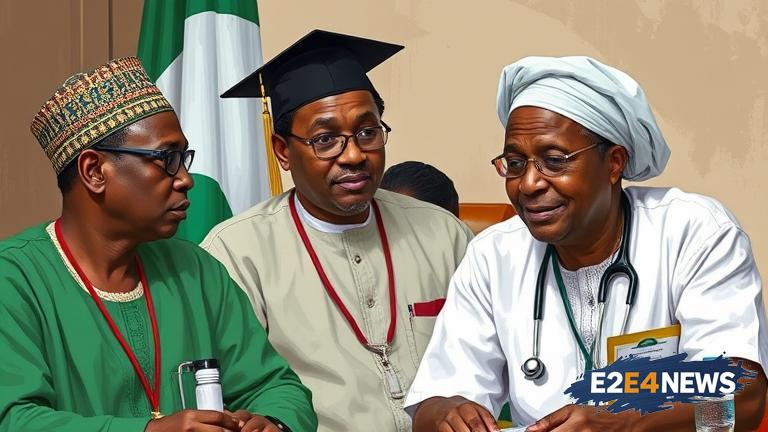The bill, which has been met with mixed reactions from the public, aims to promote the use of public facilities by government officials, in a bid to improve the overall quality of these services. Proponents of the bill argue that it will help to address the issue of neglect of public facilities, as officials will be forced to use them, thereby identifying and addressing any shortcomings. On the other hand, critics of the bill have raised concerns about its potential impact on the quality of education and healthcare services available to officials and their families. Some have argued that the bill is an overreach of legislative power, and that it infringes upon the rights of individuals to choose their own education and healthcare providers. Others have pointed out that the bill may not be effective in achieving its intended goals, as officials may simply choose to travel abroad for private education and healthcare services. The bill has also sparked debate about the role of government in regulating the lives of its officials, with some arguing that it is an unnecessary intrusion into their personal lives. Despite the controversy surrounding the bill, its sponsors remain committed to its passage, citing the need to promote equality and fairness in the access to education and healthcare services. The bill has been hailed as a bold step towards addressing the long-standing issue of neglect of public facilities in Nigeria. However, its implementation is likely to face significant challenges, including resistance from officials who are accustomed to accessing private services. The Nigerian public has been eagerly following the developments surrounding the bill, with many taking to social media to express their opinions. While some have expressed support for the bill, others have raised concerns about its potential impact on the economy and the overall quality of life in Nigeria. The bill has also sparked a wider debate about the state of public facilities in Nigeria, with many calling for increased investment in these services. In recent years, Nigeria has struggled to provide adequate education and healthcare services to its citizens, with many public facilities facing significant challenges, including inadequate funding and infrastructure. The proposed bill has been seen as a step towards addressing these challenges, but its success will depend on the ability of the government to effectively implement and enforce it. The Nigerian government has faced criticism in the past for its handling of public facilities, with many accusing it of neglect and mismanagement. The bill has been seen as an opportunity for the government to redeem itself and demonstrate its commitment to providing quality services to its citizens. However, the road ahead is likely to be fraught with challenges, including resistance from officials and the need to address the significant infrastructure and funding gaps that exist in public facilities. As the debate surrounding the bill continues, one thing is clear: the Nigerian public is eager for change and is demanding that its government take bold steps to address the long-standing issues that have plagued the country’s education and healthcare systems. The proposed bill has sparked a national conversation about the role of government in regulating the lives of its officials and the need to promote equality and fairness in the access to education and healthcare services. While the outcome of the bill is still uncertain, one thing is clear: it has brought attention to the critical issues facing Nigeria’s public facilities and has sparked a renewed commitment to addressing these challenges. The bill has also highlighted the need for increased transparency and accountability in government, as well as the importance of ensuring that officials are held to the same standards as the rest of the population. As Nigeria continues to grapple with the challenges facing its education and healthcare systems, the proposed bill has been seen as a step in the right direction, but its success will depend on the ability of the government to effectively implement and enforce it.
